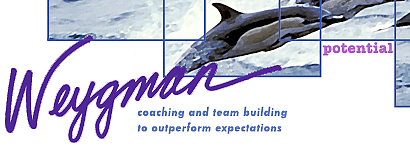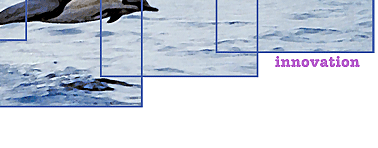 |
 |
 |
 |
|
Originally in hrlook.comTeam Involves Everyone: From the Top to the BottomBy Lorraine Weygman What’s the difference between a corporate team and a group of people who work together, enjoy meeting, sharing information and experiences? A corporate team is an energetic group of people who are committed to achieving common objectives, enjoy working well together, and produce high-quality results. These teams combine the qualities of being exceptional in performance, possesses high morale and work towards company goals. All teams don’t need a leader. Where there is one, the leader has vision, sets direction and clarifies the expectations of each team member. Furthermore, this leader knows the strengths and weaknesses of each participant and realizes the importance of recruiting the right people for a process that takes time to develop. BenefitsOf the numerous team benefits, the following outlines only a few.
Even if the workplace agrees that teambuilding is a good idea, how easy is it to adapt the team building process into the working environment? Diverse cultures, different value systems and conflicting priorities are some of the variables to consider. It’s definitely worth the effort because the results will show increased customer service quality, greater competitive advantage, and happier employees. Companies can only adopt the team concept if they clearly communicate, negotiate and assist people to be clear about the resulting change, its advantages to the individuals and the total group. It must be added value to the culture as well as to the financial picture. Where to beginBegin by examining the entire structure of the organization, starting from the top and paying serious attention to: Core framework: The core framework for building teams is to look at the corporate vision, mission, values. These must be clear to every person and practised daily. They are the departure points for setting business goals and objectives: strategic, operational and customer service. Key objectives: Define key objectives for each operating unit. If you don’t have that commitment at the top, then you’re not going to be able to integrate your goals and objectives all the way down. Performance challenge: Teams need a performance challenge. Management must take a risk and give people responsibility and accountability, to help them develop a sense of ownership as if it’s their own business. They’ll make mistakes; learn live with that. It’s necessary to build trust and confidence. It’s part of creating individual and organizational strength. Some of the world’s greatest success stories were created from what initially appeared to be failures. A corporate team is far more complicated than a general work group – even though both may enjoy working together, sharing information and experiences. Is your leadership able to handle it? In the next few articles in this series, we will outline the different kinds of teams; how recruiting and leadership are critical keys to success; how to form and develop teams; discuss team rules and stages of growth. Ultimately, we will go into depth about areas teams must consider on a daily basis. Please send me your success stories as well as your challenges and I’ll include them in future articles. I thank you in advance! Lorraine has over 25 years of international experience as an accomplished motivational speaker, consultant, writer, facilitator and radio host. She has been featured on radio and television and in numerous magazines and newspapers in North and South America, Britain and Russia. For more information about Lorraine, visit http://www.weygman.com This article may be copied as long as it's kept whole and Lorraine's bio is kept with the article, including the live link to her website.
|
"I have never participated in a process day in which there has been such synergy, enthusiasm, energy and commitment evident as that experienced and reported on feedback. You were able to generate in a day and a half a real “team feeling” among those present, not only in spirit, but in practical applications of the learnings presented. "As one person wrote, 'I have never seen this group operate in such a sharing, trusting manner. This is a real team!' You were the right person at the right time." Bruce Hosking, |
||||||||||||
HOME • ABOUT US • SERVICES • ARTICLES • FAQS • MEDIA • LINKS • CONTACT US
If you have questions or problems with this site, please contact the
|
||||||||||||||